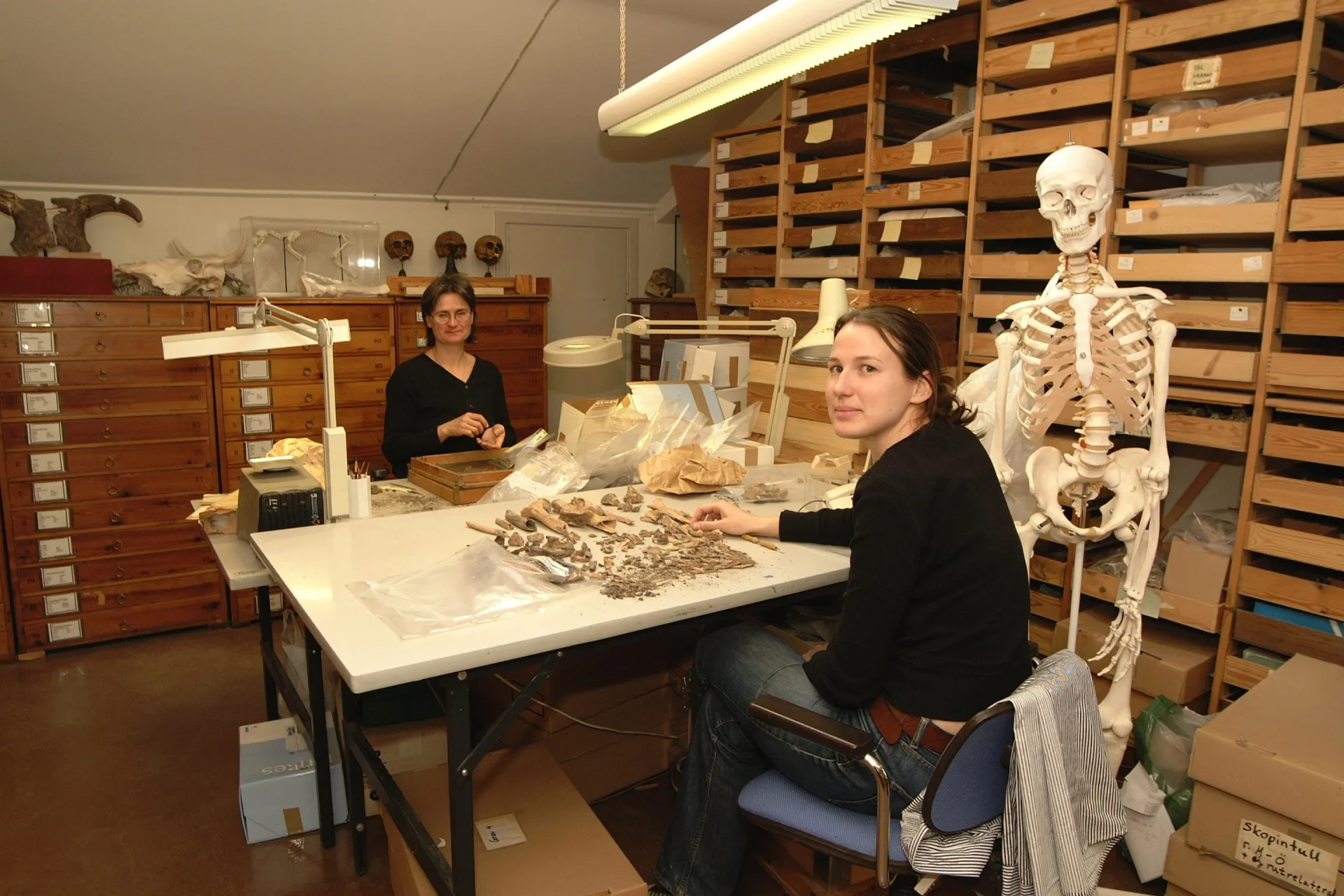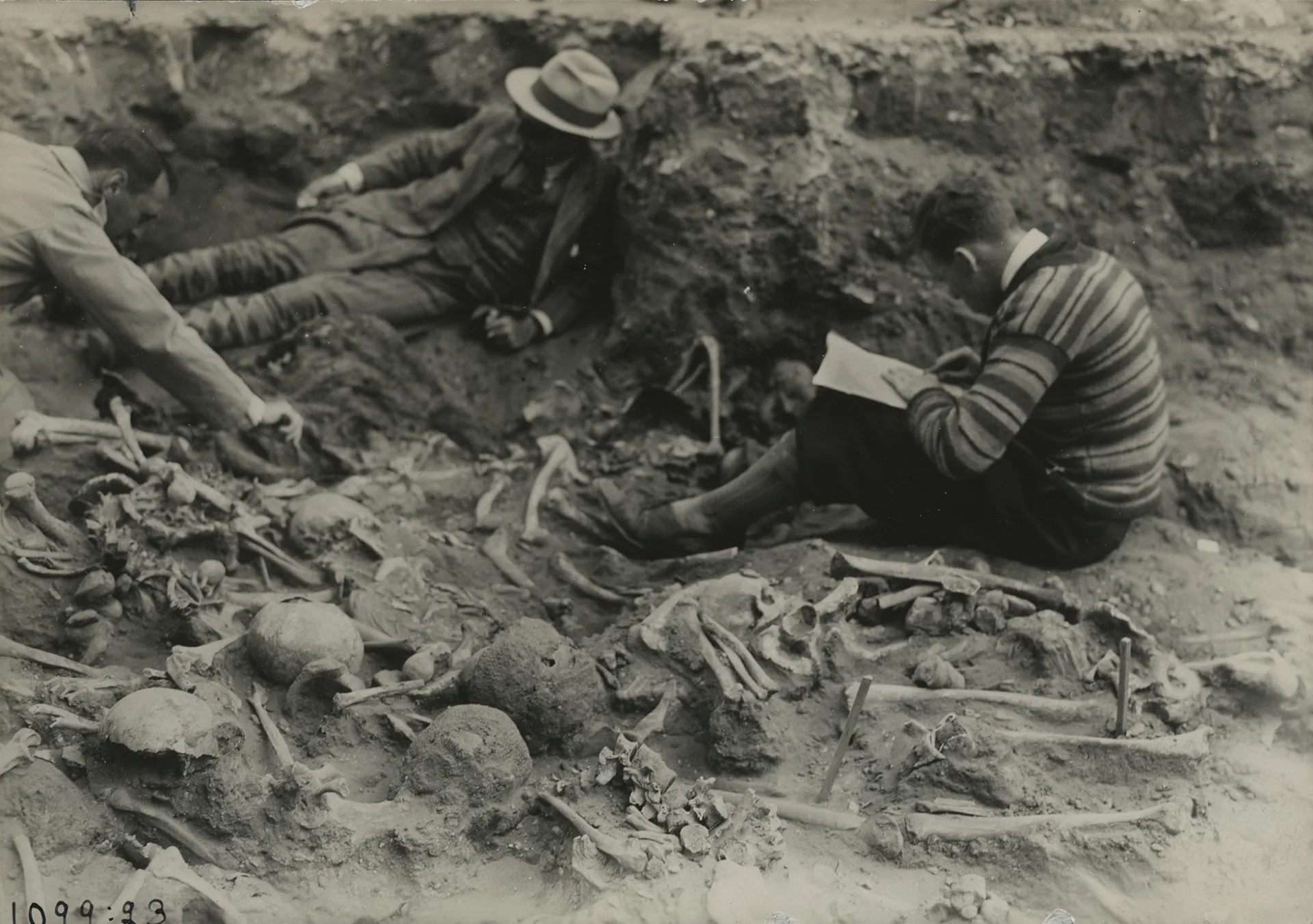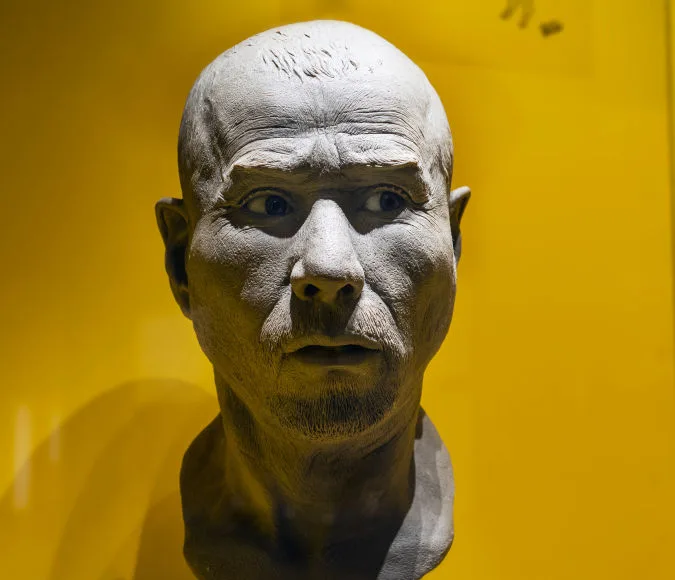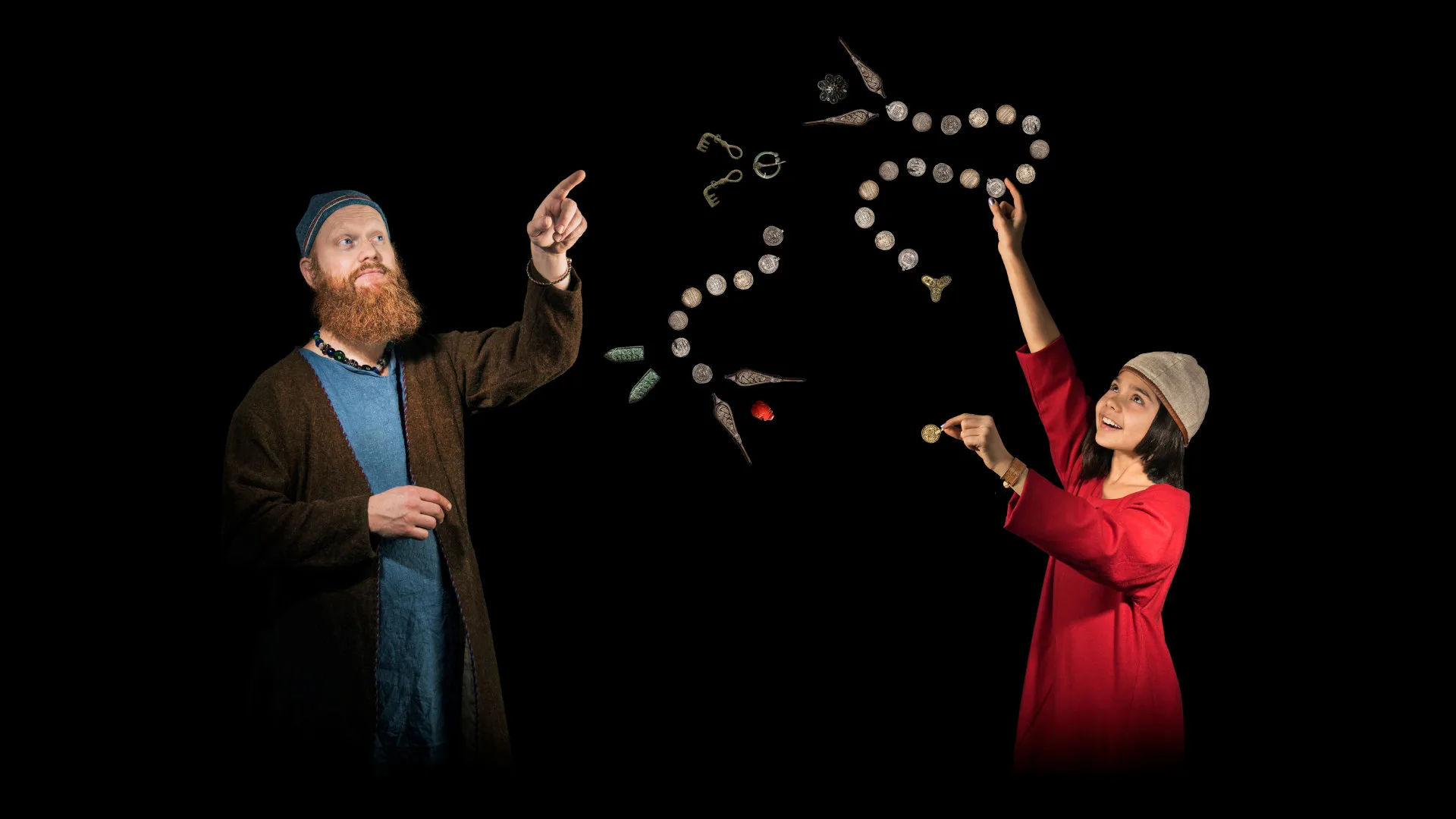What does an archaeologist do?
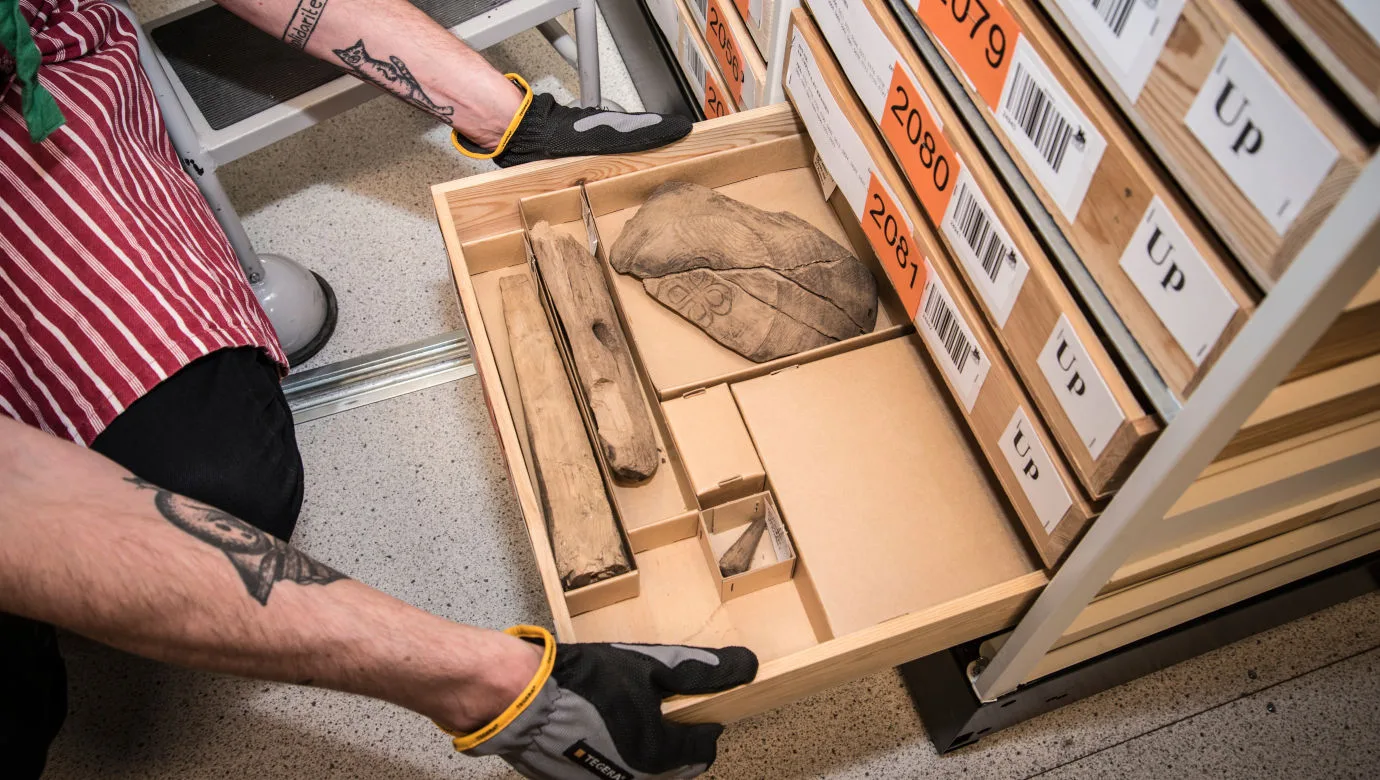
Archaeology is mainly based on fieldwork, especially excavations. These are often carried out in connection with construction projects or planned interventions in the ground, a practice known as contract archaeology. The archaeologist documents remains in the soil through careful digging, photographing, drawing, and measuring. The exact position of each find in the ground is important because it provides information about the context—the circumstances in which an object was found.
The finds recovered from the ground can include pottery, metal objects, stone tools, bone remains, building materials, or soil samples. These are collected, conserved if necessary, and transported to laboratories or museums for further analysis. The archaeologist’s work continues with interpreting the finds based on dating, comparisons with earlier materials, and connections to historical sources.
Dating is an important part of an archaeologist’s work. Methods such as carbon-14 dating, dendrochronology (tree-ring analysis), or analysis of artefact types can establish a relative or absolute chronology for the finds. This allows them to be placed in a historical context.
In addition to excavations, archaeologists work on surveying and documenting cultural environments. This involves mapping, describing, and sometimes assessing the value of various ancient sites in the landscape. Archaeologists are also often involved in urban planning, as the law requires that cultural heritage be considered during new construction or development.
Archaeology is interdisciplinary and collaborates with many other fields. For example, archaeologists often work with osteologists, paleobotanists, geologists, and historians to gain a broader understanding of the material. In this way, archaeology contributes to a versatile and evidence-based perspective on human history.
By examining material traces and analyzing their context, archaeology builds knowledge about past societies - knowledge that is often not available by other means. An archaeologist’s work is therefore crucial for understanding our cultural heritage and preserving it for future generations.
